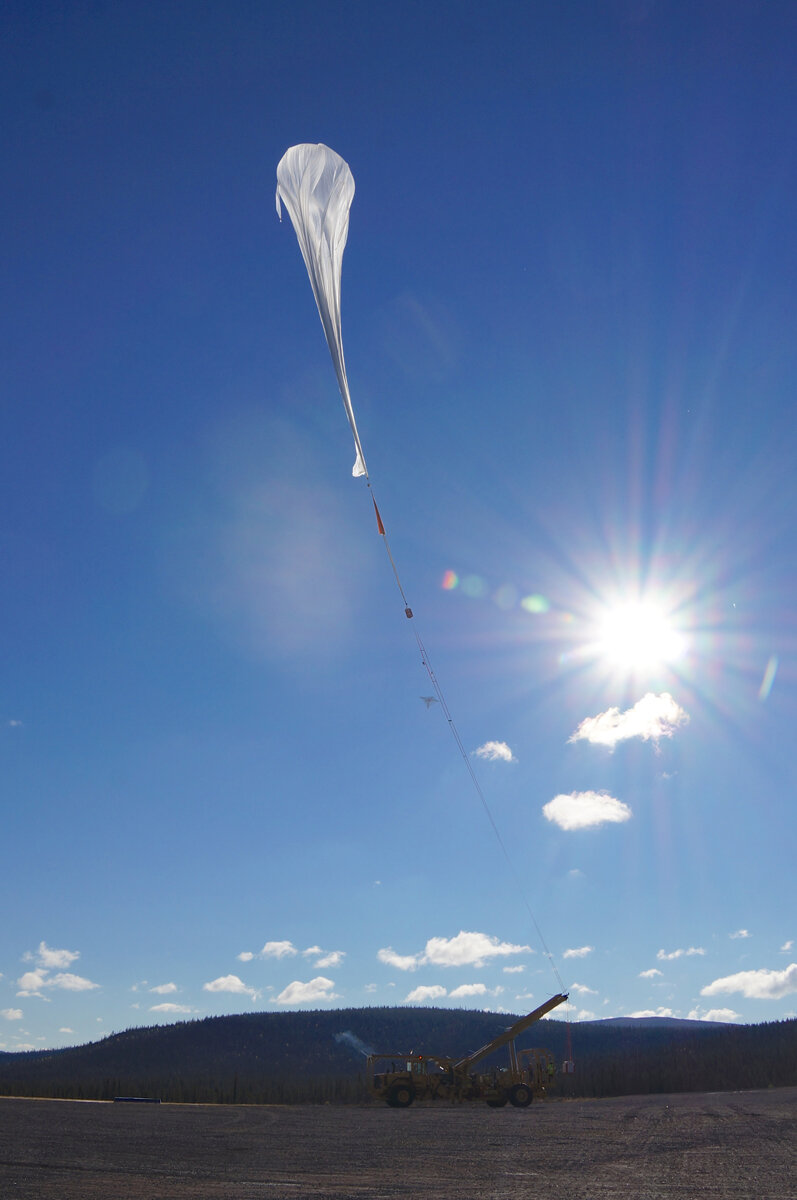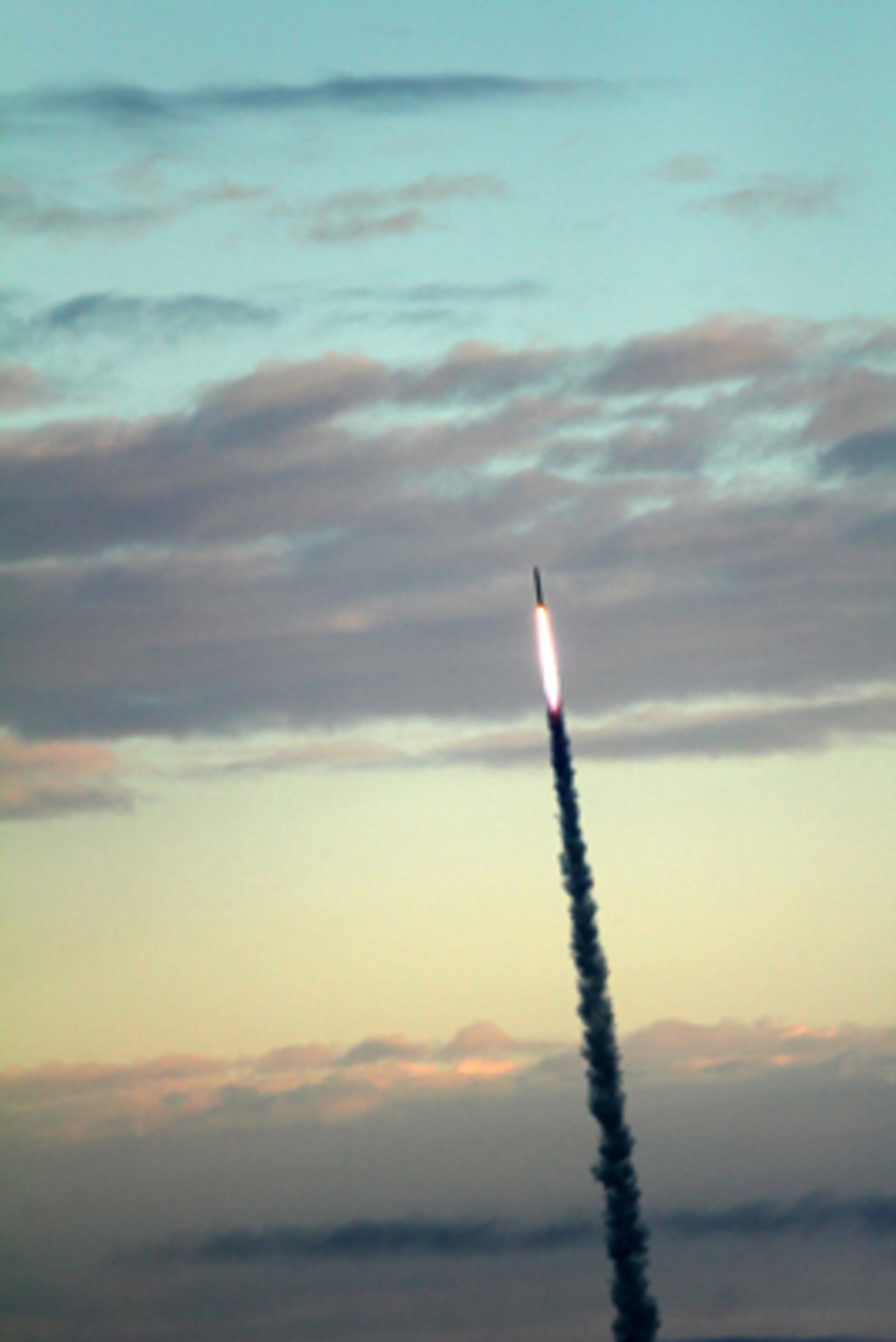Fly your experiment to the edge of space
The opportunity to fly experiments high into the stratosphere or even to the edge of space is now open again for university students. Up to 10 teams will be selected to fly a balloon experiment during autumn 2014 or a rocket experiment in spring 2015.
The opportunity is open to university students from the ESA Member States and Cooperating States. The experiments will be carried on sounding rockets and stratospheric balloons launched from the Esrange Space Center in Northern Sweden.
The REXUS/BEXUS (Rocket/Balloon Experiments for University Students) programme was established more than six years ago by the German Aerospace Center, DLR, and the Swedish National Space Board (SNSB), the latter running it in collaboration with ESA. The programme provides two rocket and two balloon launches every year for university student experiments. More than 450 students have been involved so far; 10 rockets and 10 balloons have been launched within the programme, carrying 70 experiments in total.
The experiments can be technology tests or scientific investigations. The nature of the experiment determines whether students apply to a flight on a rocket or balloon. Previous student projects have included studies of the Earth’s magnetic field, and radiation environment at high altitude, studies of the phenomena related to the northern lights and physics of the planet formation, atmospheric measurements as well as various space technology experiments.
The rockets each carry a total experimental payload of about 40 kg and reach an altitude of between 75 and 90 km. The flights are short, providing about 5 minutes of experiment time with the possibility of experiencing about two minutes of reduced gravity conditions. The balloons do not reach as high, culminating at about 25 or 30 km in altitude, but they stay in the stratosphere for 2-5 hours. They can each carry up between 40 and 100 kg experiment payload in total.
The experience provides students with a real feel for what working on a space mission would be like. They must complete a full project lifecycle, from submitting a proposal, to developing an experiment, to launching it and finally analysing the data.
They are supported in their work through contact with experts, specific training and written material, along with planning and financial support. The value of this experience is clearly recognised by the students involved.

In anonymous questionnaires asking for the best thing about being involved in the REXUS/BEXUS campaign, some of the answers were:
“Being able to take part in a space mission from end-to-end including concepts, design, building, testing and evaluation, flight and post flight data evaluation.”
“The fact that you are involved in a European project; that you have to interact with foreign people and that you have to apply what you have studied.”
“Contact with actual space programme and experts, and contact with fellow students in the area of study.”
Yet, perhaps it was the most succinct of the replies that best captured the spirit. “Have a goal, work hard and have fun.”
Student teams who would like to participate should upload their Experiment Proposal Forms by 21 October 2013 on ESA Education Office's project portal. Up to 15 proposals will be shortlisted for consideration by a selection panel. The teams will then receive an invitation for the selection workshop to be held at ESTEC on 3-5 December 2013.
The successful experiments from the workshop will then proceed to launches planned for BEXUS 18/19 in autumn 2014, and REXUS 17/18 in spring 2015.
Notes: The conditions to apply and the eligibility criteria can be found here.
German students should apply via the parallel DLR call for proposals.
The REXUS/BEXUS programme is realized under a bilateral Agency Agreement between the German Aerospace Center (DLR) and the Swedish National Space Board (SNSB). Through the collaboration with the European Space Agency (ESA), the Swedish share has been made available to students from all ESA Member or Cooperating States.
EuroLaunch, the cooperation between the Esrange Space Center of SSC and the Mobile Rocket Base (MORABA) of DLR, is responsible for the campaign management and operations of the launch vehicles. Experts from DLR, SSC, ZARM, and ESA provide technical and logistic support to the student teams throughout the project.




